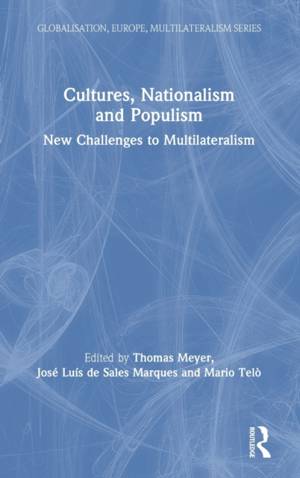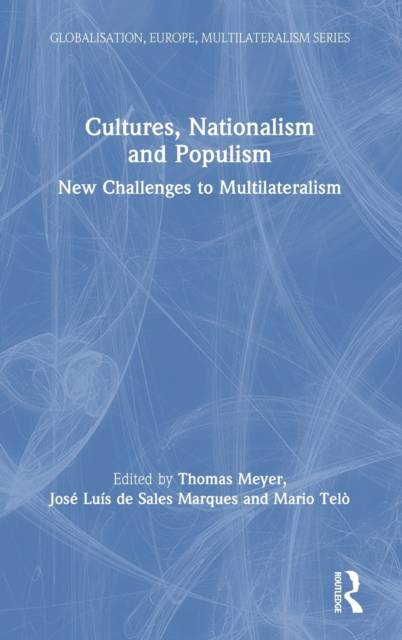
- Afhalen na 1 uur in een winkel met voorraad
- Gratis thuislevering in België vanaf € 30
- Ruim aanbod met 7 miljoen producten
- Afhalen na 1 uur in een winkel met voorraad
- Gratis thuislevering in België vanaf € 30
- Ruim aanbod met 7 miljoen producten
Cultures, Nationalism and Populism
New Challenges to Multilateralism
Omschrijving
This book examines the role of the cultural factor, and patterns of its interaction with social, economic and political developments, in fostering identity-based new populisms and various forms of political authoritarianism across the globe.
Comparing authoritarianism in the Asian and Western context, this book attempts to shed light on the different ways in which new political actors make use of cultural traditions or constructs in order to justify their claims to power and challenge the culture of modernity as understood in the Western world. Lastly, the book focuses on the consequence of these new challenges for multilateral cooperation at regional and global levels, asking the question: is the world going towards fragmentation and anarchy or a pluralist and innovative form of multilateral cooperation?
This book will be of key interest to scholars and students of populism and authoritarianism studies, democracy, global governance and more broadly to international relations.
Specificaties
Betrokkenen
- Uitgeverij:
Inhoud
- Aantal bladzijden:
- 190
- Taal:
- Engels
- Reeks:
Eigenschappen
- Productcode (EAN):
- 9780367202460
- Verschijningsdatum:
- 17/09/2019
- Uitvoering:
- Hardcover
- Formaat:
- Genaaid
- Afmetingen:
- 160 mm x 239 mm
- Gewicht:
- 453 g

Alleen bij Standaard Boekhandel
Beoordelingen
We publiceren alleen reviews die voldoen aan de voorwaarden voor reviews. Bekijk onze voorwaarden voor reviews.










